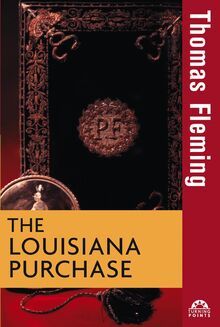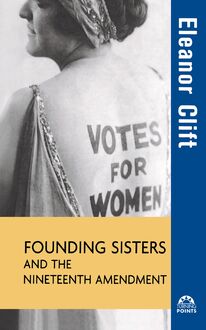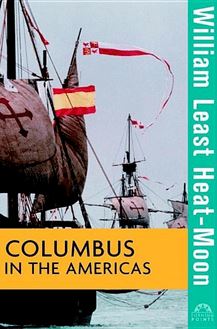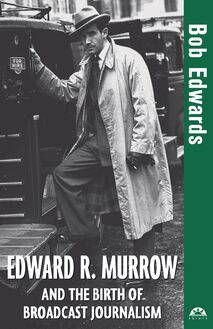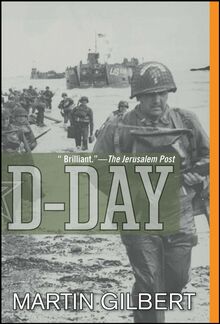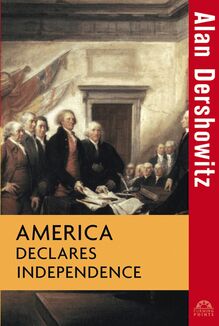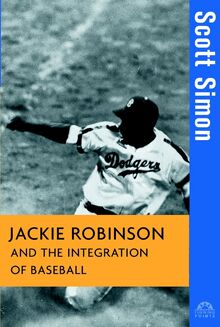-
 Univers
Univers
-
 Ebooks
Ebooks
-
 Livres audio
Livres audio
-
 Presse
Presse
-
 Podcasts
Podcasts
-
 BD
BD
-
 Documents
Documents
-
- Cours
- Révisions
- Ressources pédagogiques
- Sciences de l’éducation
- Manuels scolaires
- Langues
- Travaux de classe
- Annales de BEP
- Etudes supérieures
- Maternelle et primaire
- Fiches de lecture
- Orientation scolaire
- Méthodologie
- Corrigés de devoir
- Annales d’examens et concours
- Annales du bac
- Annales du brevet
- Rapports de stage
La lecture à portée de main
Vous pourrez modifier la taille du texte de cet ouvrage
Découvre YouScribe en t'inscrivant gratuitement
Je m'inscrisEdward R. Murrow and the Birth of Broadcast Journalism , livre ebook
Découvre YouScribe en t'inscrivant gratuitement
Je m'inscrisEn savoir plus
Vous pourrez modifier la taille du texte de cet ouvrage
En savoir plus

Description
—Bill Moyers
"Most Americans living today never heard Ed Murrow in a live broadcast. This book is for them I want them to know that broadcast journalism was established by someone with the highest standards. Tabloid crime stories, so much a part of the lust for ratings by today's news broadcasters, held no interest for Murrow. He did like Hollywood celebrities, but interviewed them for his entertainment programs; they had no place on his news programs. My book is focused on this life in journalism. I offer it in the hope that more people in and out of the news business will get to know Ed Murrow. Perhaps in time the descent from Murrow's principles can be reversed."
—Bob Edwards
Acknowledgments.
Introduction.
1. Roots.
2. Higher Ed.
3. Anschluss.
4. The Blitz.
5. Over Berlin.
6. Buchenwald.
7. Transition.
8. McCarthy.
9. See It Not.
10. USIA.
Afterword.
Bibliography.
Index.
Sujets
Informations
| Publié par | Turner Publishing Company |
| Date de parution | 03 décembre 2010 |
| Nombre de lectures | 0 |
| EAN13 | 9781118039991 |
| Langue | English |
Informations légales : prix de location à la page 0,0550€. Cette information est donnée uniquement à titre indicatif conformément à la législation en vigueur.
Extrait
Table of Contents
Title Page
Copyright Page
Dedication
Acknowledgments
Introduction
Chapter 1 - Roots
Chapter 2 - Higher Ed
Chapter 3 - Anschluss
Chapter 4 - The Blitz
Chapter 5 - Over Berlin
Chapter 6 - Buchenwald
Chapter 7 - Transition
Chapter 8 - McCarthy
Chapter 9 - See It Not
Chapter 10 - USIA
Afterword
Bibliography
Index
Preeminent writers offering fresh, personal perspectives on the defining events of our time
Published Titles
William Least Heat-Moon, Columbus in the Americas Scott Simon, Jackie Robinson and the Integration of Baseball Alan Dershowitz, America Declares Independence Thomas Fleming, The Louisiana Purchase Eleanor Clift, Founding Sisters and the Nineteenth Amendment William F. Buckley Jr., The Fall of the Berlin Wall Martin Goldsmith, The Beatles Come to America Bob Edwards, Edward R. Murrow and the Birth of Broadcast Journalism
Forthcoming Titles
Sir Martin Gilbert on D-Day Douglas Brinkley on the March on Washington Kweisi Mfume on Abraham Lincoln and the Emancipation Proclamation
Also by Bob Edwards
Fridays with Red
Copyright © 2004 by Bob Edwards. All rights reserved
Published by John Wiley & Sons, Inc., Hoboken, New Jersey Published simultaneously in Canada
Design and production by Navta Associates, Inc.
The following excerpts from Edward R. Murrow broadcasts © CBS News Archives: broadcast from a London rooftop during a German air raid on September 22, 1940; an account of a British bombing raid in Berlin on December 3, 1943; report on Buchenwald on April 15, 1945; and See It Now: Senator Joseph McCarthy on March 9, 1954
No part of this publication may be reproduced, stored in a retrieval system, or transmitted in any form or by any means, electronic, mechanical, photocopying, recording, scanning, or otherwise, except as permitted under Section 107 or 108 of the 1976 United States Copyright Act, without either the prior written permission of the Publisher, or authorization through payment of the appropriate per-copy fee to the Copyright Clearance Center, 222 Rosewood Drive, Danvers, MA 01923, (978) 750-8400, fax (978) 646-8600, or on the web at www.copyright.com . Requests to the Publisher for permission should be addressed to the Permissions Department, John Wiley & Sons, Inc., 111 River Street, Hoboken, NJ 07030, (201) 748-6011, fax (201) 748-6008.
Limit of Liability/Disclaimer of Warranty: While the publisher and the author have used their best efforts in preparing this book, they make no representations or warranties with respect to the accuracy or completeness of the contents of this book and specifically disclaim any implied warranties of merchantability or fitness for a particular purpose. No warranty may be created or extended by sales representatives or written sales materials. The advice and strategies contained herein may not be suitable for your situation. You should consult with a professional where appropriate. Neither the publisher nor the author shall be liable for any loss of profit or any other commercial damages, including but not limited to special, incidental, consequential, or other damages.
For general information about our other products and services, please contact our Customer Care Department within the United States at (800) 762-2974, outside the United States at (317) 572-3993 or fax (317) 572-4002.
Wiley also publishes its books in a variety of electronic formats. Some content that appears in print may not be available in electronic books. For more information about Wiley products, visit our web site at www.wiley.com .
Library of Congress Cataloging-in-Publication Data:
Edwards, Bob, date.
Edward R. Murrow and the birth of broadcast journalism / Bob Edwards. p. cm.—(Turning points)
Includes bibliographical references and index.
ISBN 0-471-47753-2 (cloth)
1. Murrow, Edward R. 2. Journalists—United States—Biography. I. Title. II. Turning points (John Wiley & Sons)
PN4874.M89 E38 2004
070.92—dc22
2003021223
In memory of
Ed and Lois Bliss
Acknowledgments
I will be forever grateful to my editor, Hana Lane, for writing to ask if I’d like to be part of the Turning Points series of short books published by John Wiley & Sons. Hana let me pick my subject, giving me an excuse to write about the patron saint of my profession. With the focus strictly on Ed Murrow’s innovations in radio and TV, large chunks of the man’s life had to be omitted. For those who want to know more about Murrow, the Kendrick, Sperber, and Persico books listed in the bibliography will be most enlightening. I also recommend the Cloud/Olson book on the extraordinary group of reporters Murrow recruited for coverage of World War II.
Thanks to all at John Wiley & Sons who have had anything to do with this book.
Most of the material included here is drawn from thirty years of conversation with Edward Bliss Jr. Ed wrote for Murrow at CBS, then served as the first editor of The CBS Evening News with Walter Cronkite. After he retired from CBS, he founded the broadcast journalism program at American University in Washington, D.C. Ed’s association with Murrow and Cronkite determined my choice of graduate school. I was Ed Bliss’s graduate assistant for the 1971-1972 school year but remained his student for more than thirty years. My greatest regret is that when Hana asked me to write this book, I neglected to call Ed immediately and share my good news. Ed died two weeks later, at age ninety. His counsel would have been so valuable as I wrote, but he could not have told me anything he hadn’t told me a dozen times over the previous thirty years. It would have been great just to share the moment with him.
Though a very sweet man, Ed was the toughest editor I’ve ever known, intolerant of imperfection. The second toughest is my very own wife. Sharon Edwards has a great eye for flawed construction, typing, grammar, and the like, but also for inflated rhetoric, hyperbole, and other nonsense from which her husband sometimes must be saved. She’s made this a much better book than the one I first showed her. More important, Sharon has supported my career while raising three fabulous young people. Brean Campbell, Susannah Edwards, and Eleanor Edwards provide their dad with the most rewarding conversations he has, even after a day of interviewing people making headlines.
Shannon Rhoades, Barry Gordemer, and Art Laurent of NPR were very helpful to me in writing this book. The enthusiasm of Andy Danyo for this project is enormously encouraging. Shelly Franklin Tillman makes my day job easier. Thanks to all of my colleagues at NPR for their daily collegiality in the nation’s most interesting workplace. I am a lucky man to work with the best and the brightest.
Daniel Schorr, Bill Moyers, Richard C. Hottelet, and Casey Murrow were, after Sharon, the earliest readers of this work. Thanks to all of them for their comments and suggestions.
Casey Murrow is following his father’s early path in a life devoted to education. In addition, Casey spends a lot of time on the legacy of his formidable parents and is the executor of their estate. I thank Casey for his blessing of this project.
Introduction
London, September 21, 1940. For weeks, the German Luftwaffe had been bombing Britain in preparation for a planned invasion. Initially, the targets had been military airfields, but in early September the strategy changed. Hitler struck London in the hope that the British people would beg their leaders to surrender. They bravely resisted instead. Describing Britain’s finest hour to his American audience, CBS correspondent Edward R. Murrow made a different sort of history:
I’m standing on a rooftop looking out over London. At the moment everything is quiet. For reasons of national as well as personal security, I’m unable to tell you the exact location from which I’m speaking. Off to my left, far away in the distance, I can see just that faint-red, angry snap of antiaircraft bursts against the steel-blue sky, but the guns are so far away that it’s impossible to hear them from this location. About five minutes ago the guns in the immediate vicinity were working. I can look across just at a building not far away and see something that looks like a flash of white paint down the side, and I know from daylight observation that about a quarter of that building has disappeared—hit by a bomb the other night. Streets fan out in all directions from here, and down on one street I can see a single red light and just faintly the outline of a sign standing in the middle of the street. And again I know what the sign says because I saw it this afternoon. It says, DANGER—UNEXPLODED BOMB. Off to my left still I can see just that red snap of the antiaircraft fire. I was up here earlier this afternoon and looking out over these housetops, looking all the way to the dome of St. Paul’s. I saw many flags flying from staffs. No one ordered these people to put out the flag. They simply feel like flying the Union Jack above their roof. No one told them to do it, and no flag up there was white. I can see one or two of them just stirring very faintly in the breeze now. You may be able to hear the sound of guns off in the distance very faintly, like someone kicking a tub. Now they’re silent. Four searchlights reach up, disappear in the light of a three-quarter moon. I should say at the moment there are probably three aircraft in the general vicinity of London, as one can tell by the movement of the lights and the flash of the antiaircraft guns. But at the moment in the central area, everything is quiet. More searchlights spring up over on my right. I think probably in a minute we shall have the sound of guns in the immediate vicinity. The lights are swinging over in this general direction now. You’ll hear two explosions. There they are! That was the explosion overhead, not the guns themselves. I should think in a few minutes there may be a bit
-
 Univers
Univers
-
 Ebooks
Ebooks
-
 Livres audio
Livres audio
-
 Presse
Presse
-
 Podcasts
Podcasts
-
 BD
BD
-
 Documents
Documents
-
Jeunesse
-
Littérature
-
Ressources professionnelles
-
Santé et bien-être
-
Savoirs
-
Education
-
Loisirs et hobbies
-
Art, musique et cinéma
-
Actualité et débat de société
-
Jeunesse
-
Littérature
-
Ressources professionnelles
-
Santé et bien-être
-
Savoirs
-
Education
-
Loisirs et hobbies
-
Art, musique et cinéma
-
Actualité et débat de société
-
Actualités
-
Lifestyle
-
Presse jeunesse
-
Presse professionnelle
-
Pratique
-
Presse sportive
-
Presse internationale
-
Culture & Médias
-
Action et Aventures
-
Science-fiction et Fantasy
-
Société
-
Jeunesse
-
Littérature
-
Ressources professionnelles
-
Santé et bien-être
-
Savoirs
-
Education
-
Loisirs et hobbies
-
Art, musique et cinéma
-
Actualité et débat de société
- Cours
- Révisions
- Ressources pédagogiques
- Sciences de l’éducation
- Manuels scolaires
- Langues
- Travaux de classe
- Annales de BEP
- Etudes supérieures
- Maternelle et primaire
- Fiches de lecture
- Orientation scolaire
- Méthodologie
- Corrigés de devoir
- Annales d’examens et concours
- Annales du bac
- Annales du brevet
- Rapports de stage
